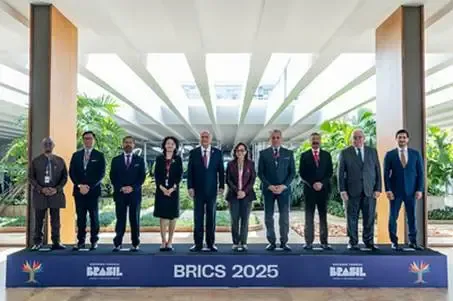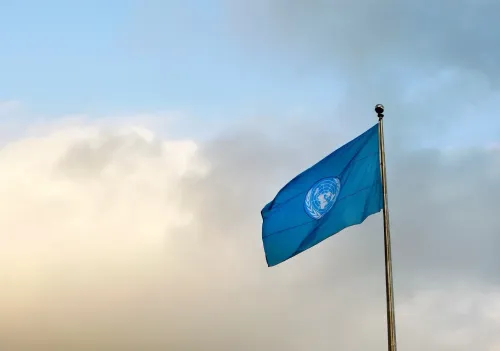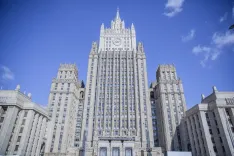Should BRICS Nations Eliminate Export Controls?

Synopsis
Key Takeaways
- India calls for the removal of export controls among BRICS nations.
- The meeting highlighted the need for equitable global trade.
- Key agreements include a focus on WTO reform.
- Mission LiFE promotes sustainable consumption practices.
- Brazil received praise for its consensus-building efforts.
New Delhi, May 23 (NationPress) India has advocated for the elimination of export controls among BRICS member nations during a meeting of the bloc's Trade Ministers, convened under the leadership of Brazil. The central theme was "Strengthening Global South Cooperation for More Inclusive and Sustainable Governance", as outlined in an official announcement made on Friday.
As India gears up to take on the BRICS Presidency in 2026, it praised Brazil's constructive approach in tackling significant trade matters during the meeting held on May 21 in Brasilia.
A notable outcome from this gathering was the adoption of a joint declaration, accompanied by three annexes, which included the BRICS declaration on WTO reform and the reinforcement of a multilateral trading system, a governance understanding for the BRICS data economy, and a framework for trade and sustainable development.
These documents collectively reaffirm the BRICS commitment to fair, inclusive, and rules-based global trade. The joint declaration particularly stressed that climate-related trade measures should not be used as instruments of unjustifiable discrimination or covert trade restrictions.
A speech on behalf of Union Commerce and Industry Minister Piyush Goyal expressed India’s gratitude to Brazil for its consensus-building efforts and welcomed Indonesia as a new member of BRICS starting in 2025. The address reaffirmed India’s dedication to a fair, transparent, and inclusive multilateral trading system, urging BRICS nations to support a decentralized global trade framework that meets the developmental needs of the Global South.
In the context of WTO reform, India underscored the importance of addressing long-standing developmental challenges, particularly advocating for a permanent resolution to public stockholding (PSH) for food security. The proposal dubbed "30 for 30" seeks to introduce 30 incremental enhancements to celebrate the WTO's 30th anniversary in 2025. India stressed that sustainable development is integral to its cultural values and must remain a fundamental aspect of international trade governance.
At the meeting, representing India, Economic Adviser in the Department of Commerce, Yashvir Singh, highlighted the necessity to remove restrictive trade measures that disrupt crucial supply chains. India called on developed nations to facilitate the concessional transfer of Environmentally Sound Technologies (ESTs), backed by necessary financial resources. The address also spotlighted Mission LiFE, India’s global initiative promoting mindful consumption and circular economy practices within an equitable climate responsibility framework.
The BRICS now comprises 10 members, with Indonesia joining the bloc. The original five members included Brazil, Russia, India, China, and South Africa. In 2024, four additional nations—Egypt, Ethiopia, Iran, and the United Arab Emirates—joined later.










